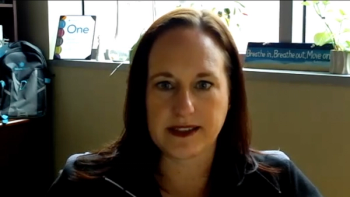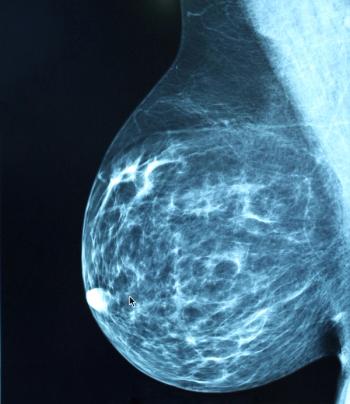
Oncology NEWS International
- Oncology NEWS International Vol 16 No 7
- Volume 16
- Issue 7
Trustee Warns That Medicare Is Heading for Insolvency
Medicare is the primary insurer for millions of current and future American cancer patients. The program, established in 1965, is also the reimbursement template for much of the private payer sector.
ARLINGTON, VirginiaMedicare is the primary insurer for millions of current and future American cancer patients. The program, established in 1965, is also the reimbursement template for much of the private payer sector. However, Thomas R. Saving, PhD, a public trustee of the Medicare program, told attendees at the World Congress 3rd Annual Leadership Summit on Medicare that we are coming to the end of Medicare as we know it. Then what?
In frank terms, Dr. Saving said that Medicare is doomed not because the program's reason for existence is past, but because its financing method simply cannot sustain its enormous expenditures. He cited a recent report by the program's trustees warning that within 7 years, Medicare taxes will fall short of Medicare expenses by more than 45%. "Medicare and Social Security are on track to devour the entire federal budget," Dr. Saving said.
How Did We Get Here?
Dr. Saving explained that Medicare is heading inexorably toward insolvency largely because of a financing system that uses generation transfers as its principal source of revenue. The system, which depends on having enough younger workers to ensure the medical benefits of retirees, will inevitably topple under the dramatic bulge of our aging population.
Moreover, Dr. Saving said that the per-capita cost of Medicare is spiraling out of control because its beneficiaries are shielded from the fiscal realities of the medical care they consume. "Grocery store advertisements are dominated by one thing, price. Healthcare firms advertise, but price is never mentioned," Dr. Saving said.
As more baby boomers retire, the financial picture will deteriorate rapidly, he said. He cautioned that the nation must be willing to tighten its fiscal belt in order to have the real resources to provide for the healthcare of its elderly citizens. "The promises we made to the elderly must be considered null and void unless the system is drastically changed," Dr. Saving said.
What Can Be Done?
Dr. Saving explained that when today's workers retire, their medical benefits will be paid only if the next generation agrees to an unpalatable solution: paying much higher taxes. "The alternative is a funded system in which each generation saves and invests in order to pay for its own benefits," he said.
Dr. Saving proposed changing Medicare in two important ways. The generational transfer method of financing should be abandoned in favor of age-based cohorts that contribute to their own private health savings accounts (HSAs), and a health insurance model with no first-dollar coverage should be introduced.
According to Dr. Saving, requiring that the first dollars spent on healthcare are the responsibility of the consumer will create incentives to value what care actually costs. "If consumers care, then competition will result in producers caring what healthcare costs," he said.
Dr. Saving contends that no reform should be taken seriously unless it is specifically designed to slow the rate of healthcare spending. On the demand side, consumers must decide how to responsibly allocate their healthcare dollars, and on the supply side, providers must replace cost-increasing innovations with cost-reducing ones. He estimated that the effects of deductible HSAs could result in a reduction in Medicare's unfunded liability by as much as 40%.
Even with these reforms, Dr. Saving said, we must still address the problem of pay-as-you-go financing. "Today, every dollar in Medicare payroll taxes is spent immediately. Nothing is saved, nothing is invested," he said. He insisted that we must introduce reforms that capture the earning potential of the baby-boom generation before they transition into retirement. "If our policymakers wait too long to address the growing Medicare deficits, the solutions will then be drastic and painful," he concluded.
Articles in this issue
over 18 years ago
Education Plan Promotes Use of Evidence-Based Practiceover 18 years ago
New Antiangiogenesis Agent Promising in Glioblastomaover 18 years ago
SearchMedica Oncology Debuts at ASCOover 18 years ago
New Small Molecule TKI Active in Thyroid Cancerover 18 years ago
NCI Rejects NSABP's P-4 Prevention Trialover 18 years ago
Experts Push for Trials of Statins to Prevent Prostate Caover 18 years ago
First-Line Dasatinib Effective in Chronic Phase CMLover 18 years ago
Vascular Disrupting Agent NPI-2358 in Phase I Studyover 18 years ago
Response to CMS Proposal on ESAsNewsletter
Stay up to date on recent advances in the multidisciplinary approach to cancer.



































